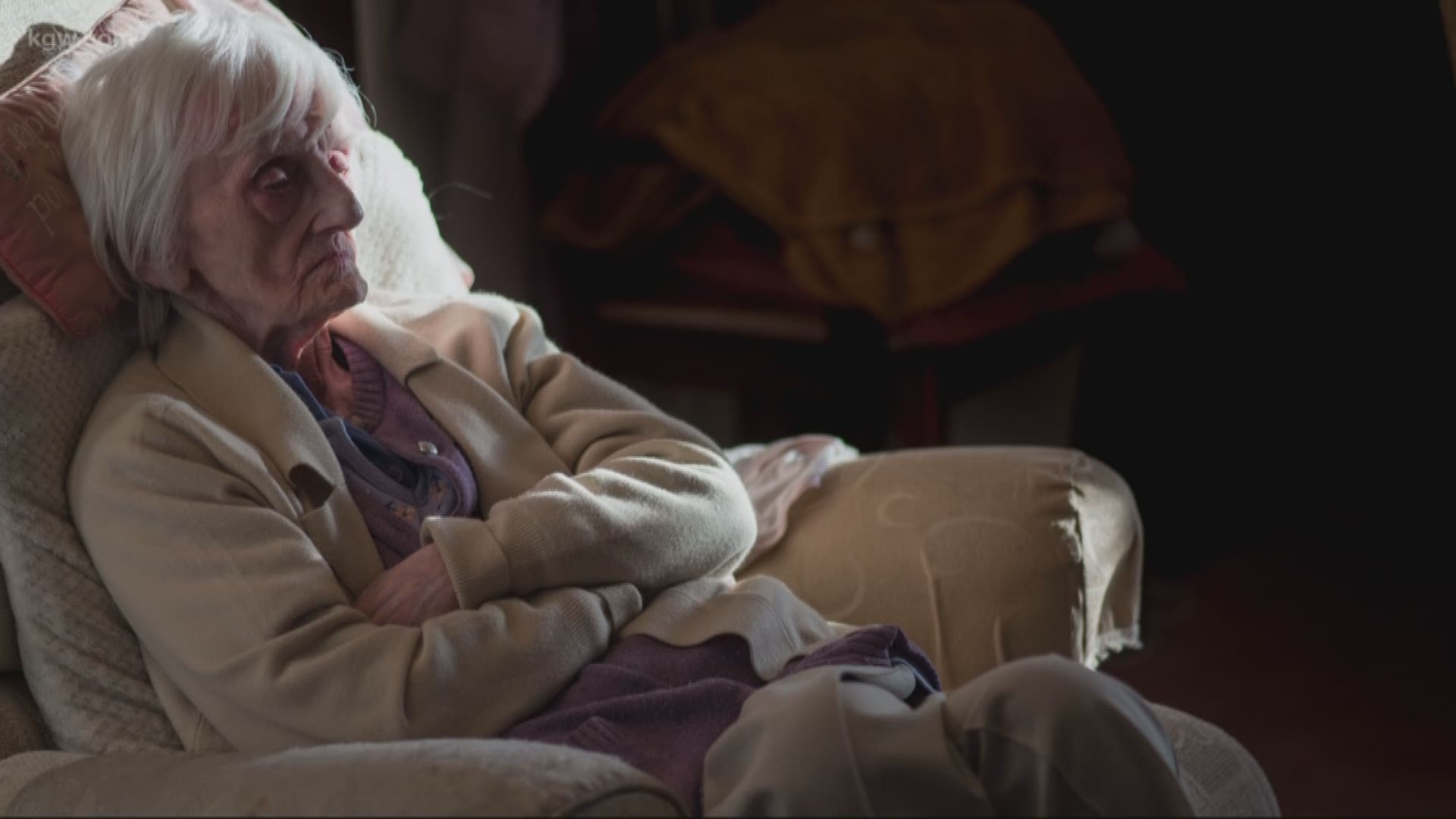PORTLAND, Ore. — Oregon's social distancing guidelines set by Governor Kate Brown to prevent the spread of COVID-19 had unintended consequences. The state's Department of Health and Human Services says its has seen a reduction in reports of elder abuse.
For those that rely on the help of others or can't speak up for themselves, abuse is more common than you might think.
Each year across the U.S., hundreds of thousands of adults over the age of 60 are abused, neglected or financially taken advantage of according to the U.S. Department of Health and Human Service's National Institute on Aging.
The agency says around one out of every 10 adults over the age of 60 experiences some sort of abuse.
There are seven common types of abuse:
- Physical abuse happens when someone causes bodily harm by hitting, pushing, or slapping.
- Emotional abuse, sometimes called psychological abuse, can include a caregiver saying hurtful words, yelling, threatening, or repeatedly ignoring the older person. Keeping that person from seeing close friends and relatives is another form of emotional abuse.
- Neglect occurs when the caregiver does not try to respond to the older person's needs.
- Abandonment is leaving a senior alone without planning for his or her care.
- Sexual abuse involves a caregiver forcing an older adult to watch or be part of sexual acts.
- Financial abuse happens when money or belongings are stolen. It can include forging checks, taking someone else's retirement and Social Security benefits, or using another person's credit cards and bank accounts. It also includes changing names on a will, bank account, life insurance policy, or title to a house without permission from the older person. Financial abuse is becoming a widespread and hard-to-detect issue. Even someone you've never met can steal your financial information using the telephone or email. Be careful about sharing any financial information over the phone or online—you don't know who will use it.
Healthcare fraud can be committed by doctors, hospital staff, and other healthcare workers. It includes overcharging, billing twice for the same service, falsifying Medicaid or Medicare claims, or charging for care that wasn't provided. Older adults and caregivers should keep an eye out for this type of fraud.
In Oregon, the DHS says that over a six-week period ending April 24, calls reporting abuse of older adults and those with disabilities were down 23 percent over the same time a year ago and less call volume isn't necessarily a good thing. Family and friends kept away from their senior loved ones are often the ones first reporting abuse.
In Multnomah County, they have seen a 17% decrease in the same time period.
The signs of abuse can be spotted by looking for:
- Has trouble sleeping
- Seems depressed or confused
- Loses weight for no reason
- Displays signs of trauma, like rocking back and forth
- Acts agitated or violent
- Becomes withdrawn
- Stops taking part in activities he or she enjoys
- Has unexplained bruises, burns, or scars
- Looks messy, with unwashed hair or dirty clothes
- Develops bed sores or other preventable conditions
If Oregonians believe they are witnessing a situation that is abusive, because it puts an older adult or a person with disabilities at risk, they should call the state’s Safeline, which is 1-855-503-SAFE (7233).

